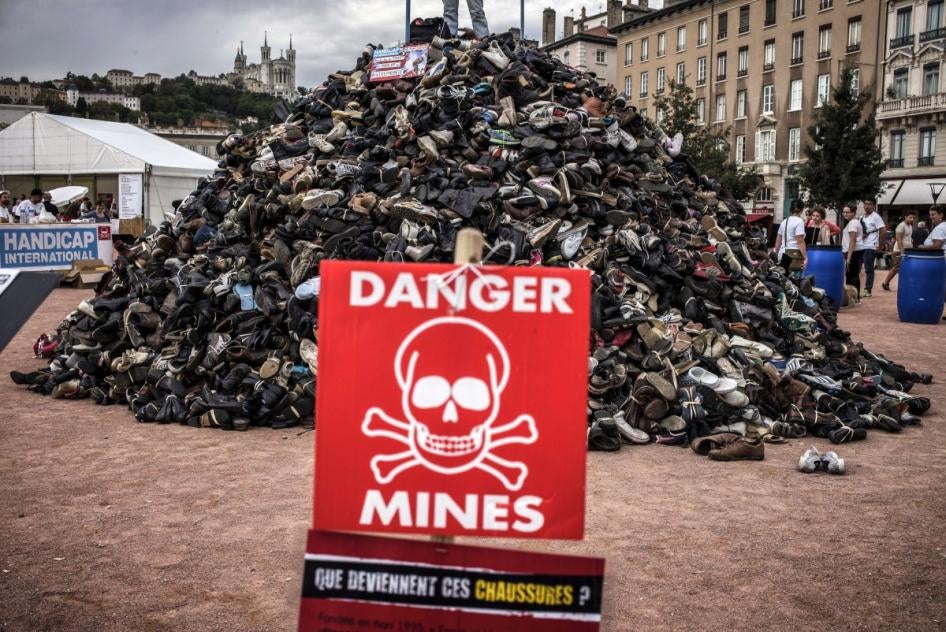France has completed the destruction of its stockpile of 34,876 cluster munition rockets and artillery projectiles that contained 14.9 million explosive submunitions, meeting a key obligation of the international ban treaty. It has also strongly condemned the use of these weapons and challenged all nations that haven’t yet banned them to do so.
As France’s announcement said, cluster munitions have “particularly serious consequences for the civilian population both during and after conflicts.”
France last used cluster munitions in 1991 in Iraq and Kuwait.
But civilians have been harmed this year by cluster munitions used by Syria and Russia in Syria and by a Saudi Arabia-led coalition in Yemen. France, along with the United Kingdom and the United States, is providing arms to Saudi Arabia, but not cluster munitions. France ceased its production and export of cluster munitions in 2002. A total of 119 states have signed the treaty, but not China, Russia, or the US.
France participated in the 2007-2008 Oslo Process that created the Convention on Cluster Munitions and its policy evolved considerably to support a comprehensive ban on the weapons. It ratified the convention in 2009, among the first 30 countries to ratify and trigger the convention’s entry-into-force on August 1, 2010.
France completed its stockpile destruction more than two years in advance of its treaty deadline, adding to an unblemished record of compliance as none of the convention’s states parties have missed the eight-year deadline.
France is also one of only two dozen countries to have enacted legislation to enforce its compliance with and implementation of the convention.
France has served as the convention’s coordinator on stockpile destruction since September 2014. With its exemplary record in eradicating cluster munitions it is now well-placed to help others to get rid of these weapons. France should increase its funding to clearance of cluster munition remnants and assistance to victims of the weapons. It should make more use of its diplomatic skills and resources to engage with states that use cluster munitions to convince them to stop.
France’s actions show the importance of embracing international law to stigmatize these inherently objectionable weapons. All states should commit to the Convention on Cluster Munitions if they are disturbed by the civilian harm caused by their use and explosive remnants.










